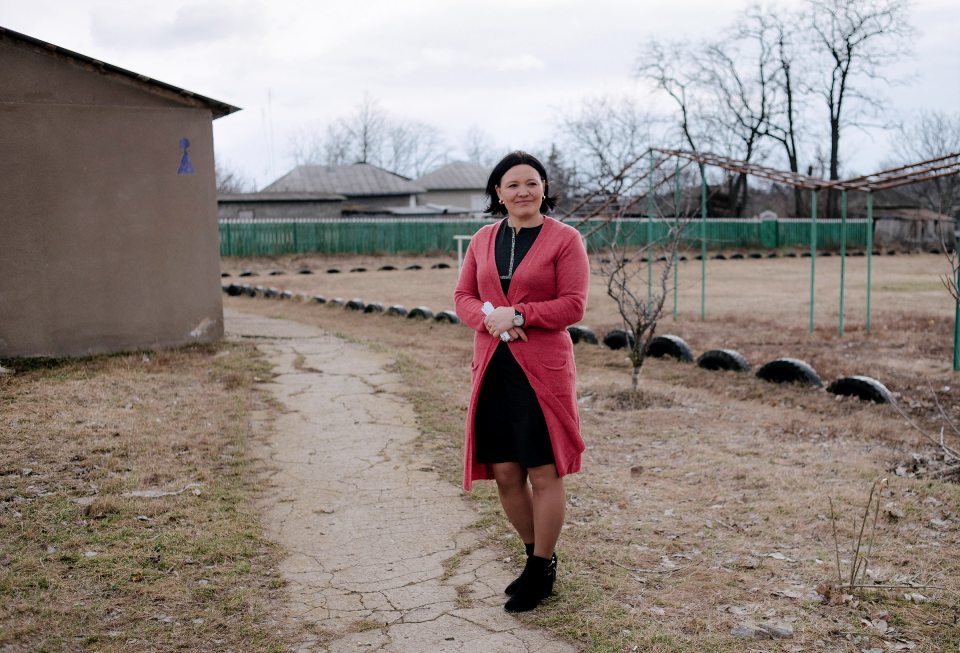A teacher in Moldova learns to lead, changing her community for the better and inspiring others
A local teacher in a remote village in Moldova helped improve the lives of her students and now has her sights set on local leadership, after participating in the UN Women supported "INSPIR-O!" (Inspire it) Mentorship Programme.Date:

Until recently, the 406 students from Pelinia, a remote village in the Drochia district of northern Moldova, had no toilets inside their school building. Like many buildings across the country, there was no sewerage system installed, which left them having to brave all sorts of weather to simply use the bathroom. The lack of running water also meant the simple outdoor facilities were often unhygienic.
In 2017, 40-year old history teacher, Ludmila Ţurcanu, herself from Pelinia and a graduate from its local school, along with four other female teachers and a student decided to change this situation.
“It was a serious issue,” Ţurcanu explains. Children were getting ill because the facilities were cold, dirty and with no running water the students were unable to wash their hands. “We focused on this issue because if we want healthy young women and men, we must create the basic conditions for them," she explains.
The group of women lobbied their local council to first install running water through pipes connected to a nearby aqueduct. The pipes were extended, also enabling a nearby health centre to get water on tap. But, finishing the project required significant funds and further support from local authorities to install the needed sewage system.
“We insisted that the problem of sewage also had to be solved by the local administration and eventually they agreed,” explains Turcanu. The group mobilized the needed funds, with the cost of the sewage system and water pipes covered by public authorities. Other costs to build the toilet facilities were met from school and community funds, and the construction materials were bought with a grant from UN Women offered through the “Partnership for Development” Centre, a non-profit institution that promotes gender equality and women’s rights in Moldova.
Read the full story on UN Women's website for Europe and Central Asia